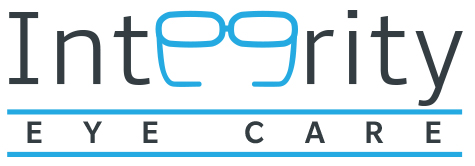Many people delay their first eye exam, especially if they don’t wear glasses or notice vision issues. But even without symptoms, a comprehensive eye exam in Murfreesboro is an important part of maintaining your overall health.
At Integrity Eye Care, we provide thorough exams for both first-time and returning patients. Learn about the importance of regular eye exams and what to expect during your first check-up.
Why you need an eye exam (even if you see fine)
Even if your vision seems clear, regular eye exams are about more than checking how well you can see. A comprehensive eye exam helps detect early signs of eye diseases like glaucoma, diabetic retinopathy, and macular degeneration, sometimes long before you notice symptoms. It also gives us a chance to monitor how your eyes are functioning as a team and how they may be affected by your overall health.
What happens during your first eye exam
When you arrive at Integrity Eye Care, we’ll start by learning a bit about you. We’ll ask about:
- Your medical and vision history
- Any symptoms you’ve noticed (like blurry vision, eye strain, or dryness)
- Your lifestyle (including screen time or time spent outdoors)
From there, your eye exam will include:
Vision testing
You’ll read letters on an eye chart so we can check your visual acuity and determine if you need glasses or an updated prescription.
Refraction test
If necessary, we’ll determine your precise prescription by having you compare different lens options to find the clearest vision. This helps us fine-tune your glasses or contact lens prescription so you can see your best.
Eye health evaluation
We’ll examine the inside and outside of your eyes using specialized tools. This can involve dilation or retinal imaging to check for early signs of eye disease.
Eye muscle & coordination tests
We’ll assess how well your eyes move and work together, a key part of comfortable vision, especially if you experience eye strain or chronic headaches. Depending on our findings, we may recommend specialized eyewear such as Neurolens.
Do eye exams hurt?
Eye exams are painless. Some people notice slight sensitivity to light if dilation drops are used, but it’s temporary. Depending on the results of your Optomap digital retinal exam, we may not need to dilate your pupils during your eye examination. If we need to dilate your pupils, we’ll explain why and let you know how long it may affect your vision.
How often should you have an eye exam?
How often you need eye exams depends on several factors such as your age, family history, and vision needs:
- Adults (18–64): If you don’t have vision problems, an eye exam every two years is typically enough. If you wear glasses or contacts, yearly exams are recommended.
- Seniors (65+): The risk of conditions such as glaucoma and cataracts increases with age, so annual eye exams are highly recommended.
- At-risk individuals: If you have diabetes, high blood pressure, or a family history of eye disease, more frequent exams may be needed to closely monitor your eye health.
Are you ready to schedule your first eye exam?
We’d love to welcome you to our office. Call or book online today to schedule your comprehensive eye exam and ensure your eyes are healthy and your vision is protected.



